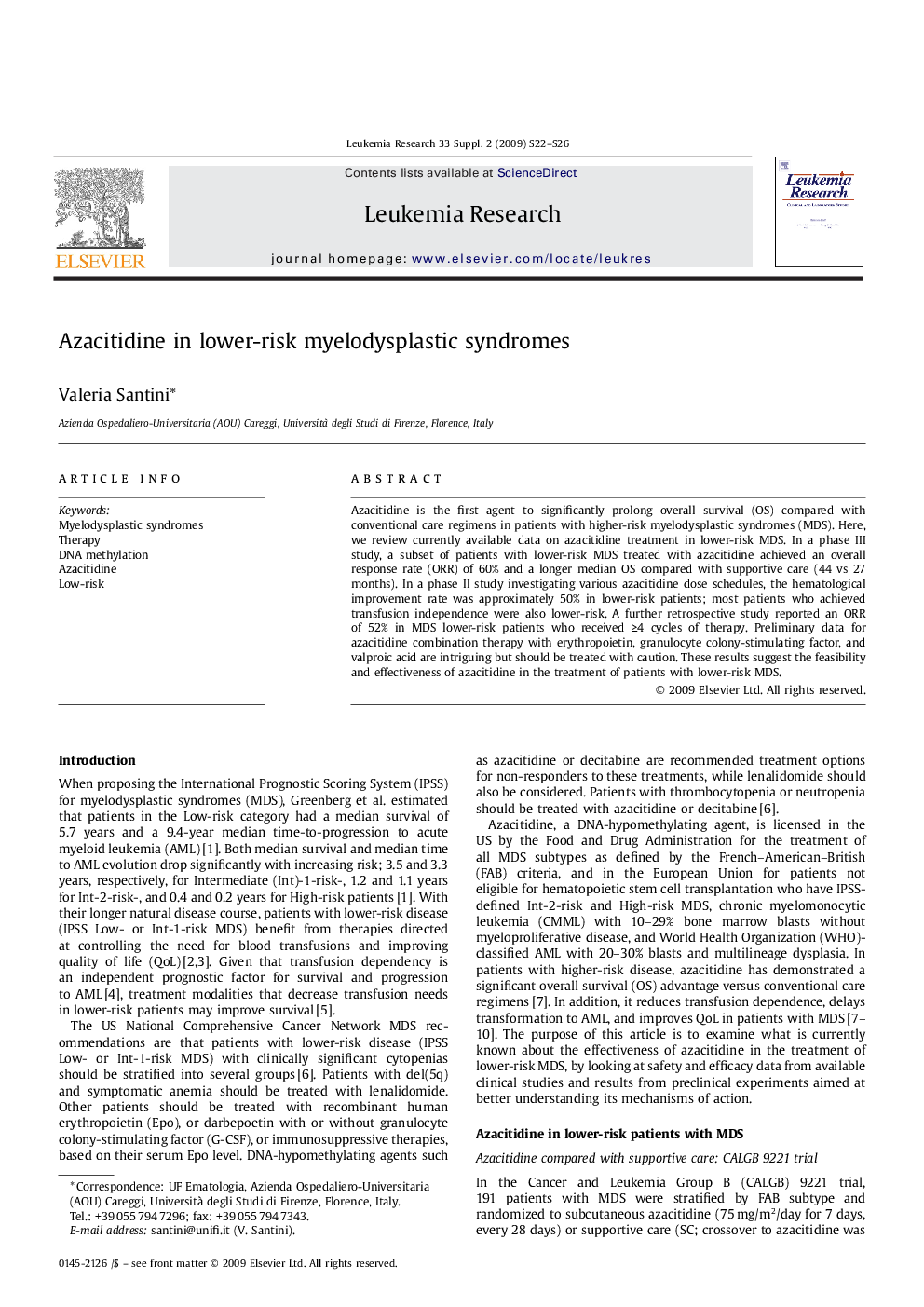| Article ID | Journal | Published Year | Pages | File Type |
|---|---|---|---|---|
| 2138941 | Leukemia Research | 2009 | 5 Pages |
Azacitidine is the first agent to significantly prolong overall survival (OS) compared with conventional care regimens in patients with higher-risk myelodysplastic syndromes (MDS). Here, we review currently available data on azacitidine treatment in lower-risk MDS. In a phase III study, a subset of patients with lower-risk MDS treated with azacitidine achieved an overall response rate (ORR) of 60% and a longer median OS compared with supportive care (44 vs 27 months). In a phase II study investigating various azacitidine dose schedules, the hematological improvement rate was approximately 50% in lower-risk patients; most patients who achieved transfusion independence were also lower-risk. A further retrospective study reported an ORR of 52% in MDS lower-risk patients who received ≥4 cycles of therapy. Preliminary data for azacitidine combination therapy with erythropoietin, granulocyte colony-stimulating factor, and valproic acid are intriguing but should be treated with caution. These results suggest the feasibility and effectiveness of azacitidine in the treatment of patients with lower-risk MDS.
